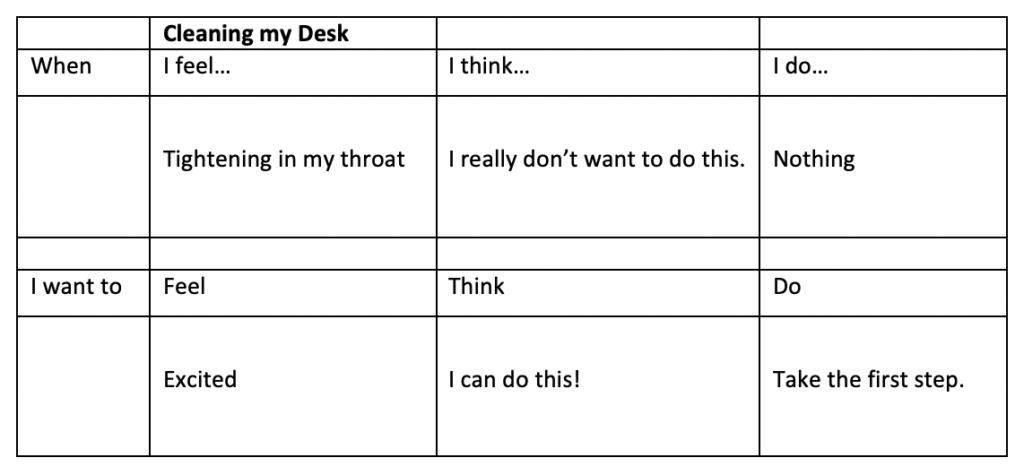
It’s that time of year again – resolutions and promises about all we’re going to accomplish. I have a list, too, and it includes items that have been on the list for years, unresolved. What’s that all about?
The bottom line is that I’ve not been realistic about the outcome I want to achieve. Are you challenged by this, too? The well-intentioned promise that leads to disappointment and shame? After all, how big a deal is it to lose 10 pounds or keep my desk free of papers (fill in your own goals).
Apparently it is a big deal. The concept is simple; however, follow-through is not easy. If it were, we’d all have, be and do everything we desire.
This is what I’m going to do differently this year, my revised promise to my future self:
Make a commitment to do better, not to do it all.
Black and white, all or nothing. This is the mindset that sets me up for failure. My new intention is to have realistic expectations for myself.
Now, about my desk… This year I learned that I could keep one section tidy without it feeling like a huge burden. I’m not ready yet to keep it clean, all the time. The lesson is to do what I know I can do. When it becomes burdensome and annoying, resistance sets in.
Here’s a tool you can use to hone in on whether or not your goal is realistic for you. I learned it in my coach training program, and I call it “Feeling, Thought, Action”.

Resistance and shame go hand in hand; neither one is a productive motivator. One way to be more mindful of what’s going on is to tune in your body. Start by noticing uncomfortable sensations and what they bring up for you. What do you feel, what’s the thought that comes, and what action do you take, or not?
Then move on to what you do want to feel, think and do. This is where knowing yourself and your resistance triggers comes into play. Forget the messaging you grew up with such as “Do it all, or don’t do it at all.”
This kind of thinking leads us to do nothing. Why? Fear of failure and fear of criticism (from yourself and others). We’ve been programmed for complete and total success. Anything less is seen as a failure.
What if we change the definition of success from doing, having and being it all to making progress? To being a little better than the time before? Small steps are really the big steps because we accomplish something. They build confidence and spur us to take another step.
Make a promise to do it better, rather than to do it all to the -nth degree (and maybe not do anything). I, for one, am going to sit back and enjoy the neat spot on my desk for a while…
